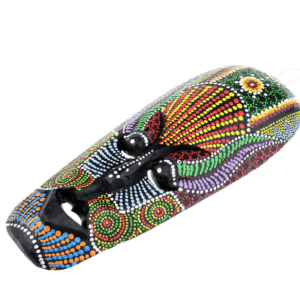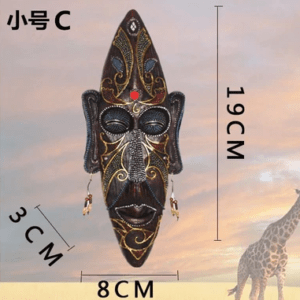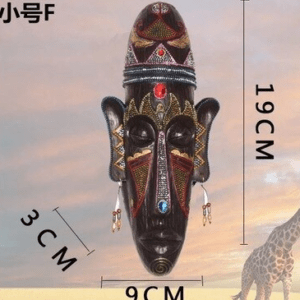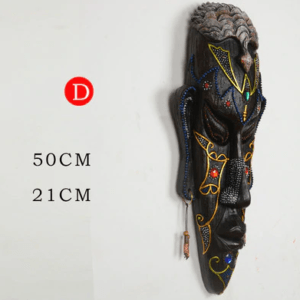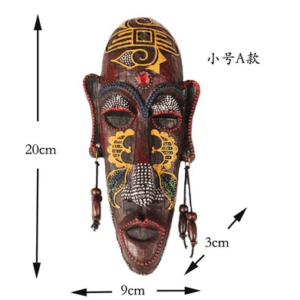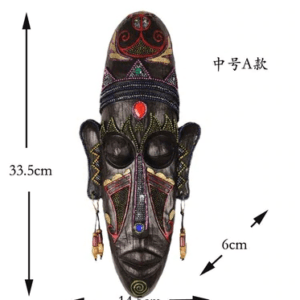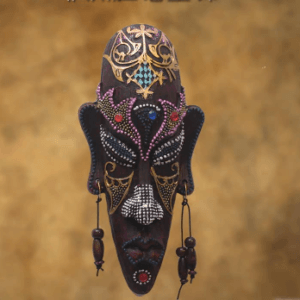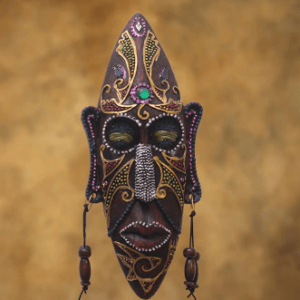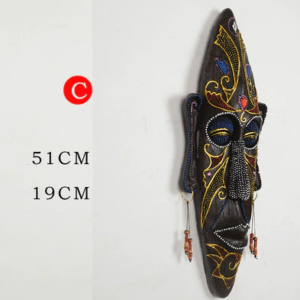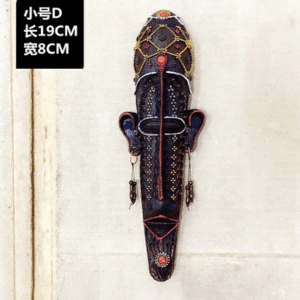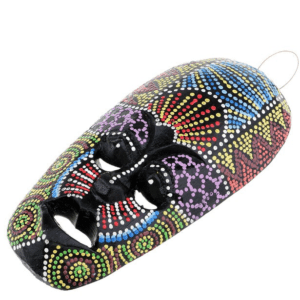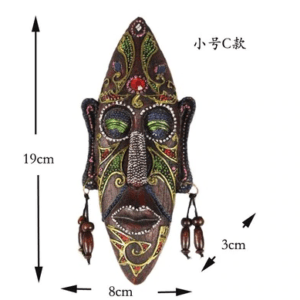African Masks for Sale
Showing 1–12 of 35 results
-
SALE 50%

African Mask Artistic Wall Decoration
$24.95 Buy Now -
SALE 33%

African Mask Craft Hanging Decoration
$49.95 Buy Now -
SALE 29%

African Mask Creative Craved Wall Hanging
$49.95 Buy Now -
SALE 24%

African Mask Creative Design Wall Decoration
$79.95 Buy Now -
SALE 27%

African Mask Resin Wall Carving Art
$54.95 Buy Now -
SALE 26%

African Mask Wooden Craved Wall Decoration
$99.95 Buy Now -
SALE 33%

African Retro Mask Wall Hanging
$59.95 Buy Now -

Ancient African Mask Wall Decoration
$50.00 Buy Now -
SALE 27%

Ancient Art African Mask Wall Decoration
$79.95 Buy Now -
SALE 33%

Ancient Wooden African Mask Wall Decoration
$49.95 Buy Now -
SALE 50%

Antique African Mask Wall Decoration
$24.95 Buy Now -
SALE 27%

Antique Wall Decoration African Mask
$54.99 Buy Now
Tribal African Masks Collection
Tribal African masks are not just a mere antique piece, but holds a lot more meaning for the Africans. These masks are considered a sacred thing in their life till death. It is included in their cultural heritage that makes the African masks so important for the people there.
The creation of the masks is another very significant process on which the power of the African mask lies. For example, one of the reasons for creating a mask is to commence fertile crops or asking for rain; so, the power of the mask is somewhat equivalent to the cause of the society.
History of African Masks
The history of the African masks can be dated back to the stone age where everything was a lot surreal than now. We can trace them back from Paleolithic times. African Masks have been a part of African culture for over a thousand years.
Native people use them as part of their ceremonies, rituals, and celebrations. African masks differ greatly and are categorized according to the type of tradition. They can be plain and modest or can be elaborative from the appearance.
Tribal Africans
Africa embodies wildlife, coastal region, and local villages. The following tribes are prominent in different regions of Africa. Maasai, Kenya, and Tanzania. The Maasai tribe is into cattle grazing that includes wildebeest and zebra.
They live on expansive plains of Kenya and Tanzania. Himba, Namibia. They are semi-nomadic pastoralist people whose women are known for their dramatic beauty. They make intricate jewelry with iron and shell beads.
Kunda, Zambia. Kunda people are highly recognized for their traditional Kunda dance. Samburu, Kenya. Samburu means butterfly, as related to the beauty of their people. They wear colorful beaded headdresses and bracelets.
San Bushmen, Botswana. These intelligent people know how to make animal traps, tobacco from the waste of zebra, and how to find the tubers and roots.
Xhosa, South Africa. Xhosa was previously into herding and farming, but now they seek other livelihoods and activities. Zulu, South Africa. Zulu people are known because of their roots in Zulu craft, building skills, pottery, brewing, dancing, and music.
African Art
African art includes a variety of objects, from traditional sculpture to masks, the art can make the tourists awestruck. The locals know the art of painting, photography, ceramics, metalworking, and much more.
Many of such precious pieces are made their place in the art galleries. Apart from that, people love to adorn themselves with jewelry made of silver, gold, copper, brass, ivory, wood, clay, animal skin, textiles, and beads.
Moreover, they use carved and woven objects designed especially for specific occasions, while some of them are in their everyday use. Many of these products attract tourists and enhance trade.
The mythology of Masks
The villagers of the different tribes of Africa, like Zulu, Ghanaian, have deep-rooted beliefs regarding the use of masks. They believe that by wearing a mask one becomes able to communicate with the spirits and the ancestors.
They think that the spirit of the ancestor can come over the mask wearer. Some believe that wearing a mask is a means to control the forces of good and evil.
Wearing a mask can be a sort of blessing and guidance too in situations like war preparation, crop harvesting, marriage, fertility, and burials. Since some of the African masks are carved in the shape of animals, so the wearer of the mask is considered to hold the animal spirit.
Types of African Mask
The idea of the mask, as we suspect, is to just cover the front face. But in African culture, masks are defined in six basic forms. One is the face masks that are put on the front of the face having the shape of a human or animal.
Helmet masks are like a helmet that is put on the head. While forehead masks are the ones that affix the head horizontally with a fabric covering the face of the wearer. Other than these, here comes helmet crest masks that look like a cap and don’t cover the face.
Headdress masks have human or animal figures at the base and form a ring on the wearer’s head. Shoulder masks are designed to cover the head and top body parts.
Baule Masks
The Baule people of Africa use masks in the festival called goli. They have four different kinds of masks. One of them is called kple kple, a junior male mask, that is worn by the younger members.
The mask has a circular-shaped face representing the sun and above it, animal horns are present, showing the sign of power and strength of the buffalo.
Dan Masks
The Dan people design wooden masks in the form of human faces. They have a firm belief in the human world and the spirit world. They believe that the masks hold the power of a supernatural force/spirit called gle. Their masks are a means of protection and communication with the spirits.
Bwa Masks
Bwa Masks are connecting bodies between the humans and the nature spirits. They wear it while having cultural rituals and performances. Bwa masks are carved with wooden planks and resemble animals. These masks are painted with different colors having geometric designs.
Hand Carved Masks for Wall Hanging
The African tribal masks can also be used for a decorative purpose. These are well crafted and carved with contrasting color paints on them. The complex detailing over the masks would surely make people stop and throw a deep glance at them.
You can hang them in your hallway, living room, bedroom, kitchen, or even in the office. The bohemian touch of these masks would depict your artisan nature.
Free Shipping and Returns
At Kabuki Mask, we ensure high customer satisfaction with free shipping. But if by any means, you find the product not up to the mark, you can return it within 30 days from the date of the receiving of the product. Follow our website and get the latest wall hangings.

